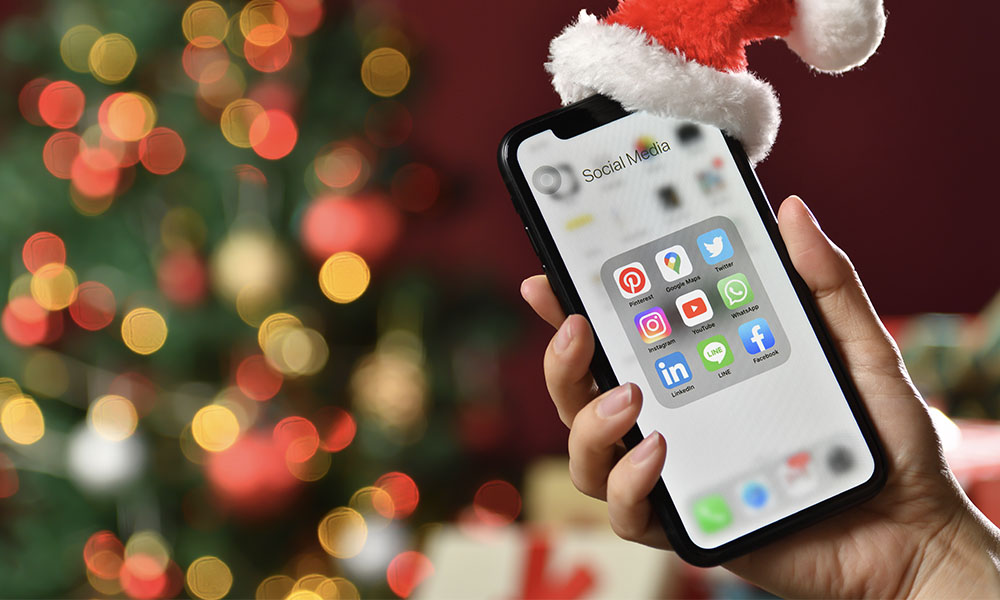Apple Just Gave Small Developers an Early Christmas Present
 Credit: amenic181 / Shutterstock
Credit: amenic181 / Shutterstock
Toggle Dark Mode
Back in November, Apple unveiled a new “Small Business Program” for developers publishing their apps on the App Store, and while the program wasn’t originally scheduled to kick in until 2021, it looks like Apple has turned the switch a bit earlier than expected.
Although Apple announced the program on November 18, it didn’t actually start accepting applications until a couple of weeks later, with developers who wanted to begin receiving benefits by January 1, 2021 being told that they would need to submit their applications by December 18, 2020.
Last week 9to5Mac reported that developers who had enrolled in the program began receiving emails welcoming them to the program and advising them that they would see reduced commission rates “by January 1, 2021,” but in an early Christmas present to new members of the program, it appears that Apple began cutting the rates almost immediately, with many developers reporting that they were seeing the lower commissions in their reports as early as December 24.
To be clear, Apple hasn’t actually started cutting cheques for the higher amounts yet, so technically speaking if the payments aren’t made until after January 1, 2021, that’s still sort of within the window of next year, but many developers weren’t expecting the lower commission to take effect until New Year’s Day — and Apple was certainly under no obligation to cut the rate before then, so it’s definitely a magnanimous move on the company’s part that helps to show it’s serious about supporting small developers.
In fact, the Christmas Eve timing makes it far more significant for developers’ bottom lines as well, since it comes during the busy holiday season when sales of apps and games are likely going to be at their peak, allowing these businesses to reap the benefits from the post-Christmas app-buying frenzy that always occurs as people find new iPhones, iPads, and Apple Gift Cards under the tree.
About the Program
Ever since the debut of the App Store back in 2008, Apple has basically taken a fixed 30 percent commission for all sales of apps and games, and this was extended into other features such as in-app purchases and subscriptions as the App Store expanded into these areas.
Basically, how this has worked since the beginning is that Apple would collect whatever the price of the app or in-app purchase was, and payout 70 percent of that to the developer, keeping 30 percent of that total for itself to support the running of the App Store.
Although many developers are vocally critical of Apple’s 30 percent commission, it’s a business model that doesn’t differ that much from how retail stores operate, except that in this case the developers set the actual prices that their apps will sell for, and Apple just takes a flat 30 percent cut, rather than Apple “buying” the apps at wholesale prices and then deciding on the markup for itself. The 30 percent commission has also effectively become the industry standard, with Google, Amazon, Sony, and Microsoft and others all charging the same rates.
While there have been a couple of notable exceptions to Apple’s 30 percent commission, they only applied in fairly narrow circumstances. A few years ago Apple dropped the rate for in-app subscriptions that continued beyond one year to 15 percent to encourage developers to try and retain customers long-term by building quality apps and services. Apple also quietly launched its Video Partner Program back in 2015 — a by-invitation-only arrangement that would allow premium streaming providers like Amazon Prime, Disney+, and HBO Max to benefit from a lower 15 percent commission in exchange for fully supporting all of Apple’s streaming hardware and software features.
With its new Small Business Program for developers, however, Apple is for the first time cutting its commission across the board, with no preconditions except that the developers in question must be “small” — that is, earning below $1 million per year from apps.
While that may sound like a low bar, it turns out that many analysts have suggested that 98 percent of App Store developers should be able to qualify for the program. According to a report by appfigures, “almost everyone is a Small Business” by Apple’s standards, estimating that out of over 124,000 developers, only about two percent actually earned more than $1 million in 2019.
Of course, these are the usual suspects, including Google, Tinder, Bumble, Disney, Dropbox, LinkedIn, Epic Games, and Candy Crush’s King.
Not surprisingly, appfigures also found that games completely dominate the “$1 million plus club,” accounting for almost 55 percent of all App Store revenue in 2019.
To be clear, appfigures emphasizes that these are the numbers from 2019, and 2020 might paint a very different picture, especially in the midst of a global health pandemic that left more people stuck at home, likely increasing the demand for apps, games, and in-game purchases.
While the staunchest critics of Apple’s App Store policies continue to be vociferously opposed to the new program, accusing the company of simply throwing out a meaningless carrot to appease antitrust regulators and pit app developers against each other, the reality is that as appfigures so concisely puts it, “Apple just made more than 98% of its developers 50% happier,” and it even went the extra mile by giving them a nice Christmas bonus.
While it doesn’t fix every problem with the App Store, it’s pretty hard to make a case that this is a bad thing for most developers, especially during a time when many are struggling to make ends meet.






